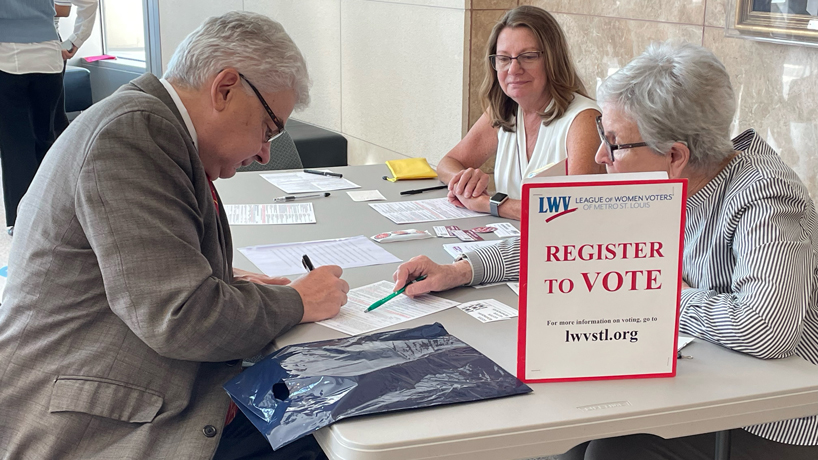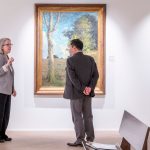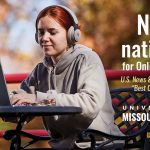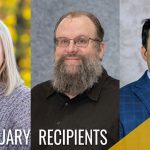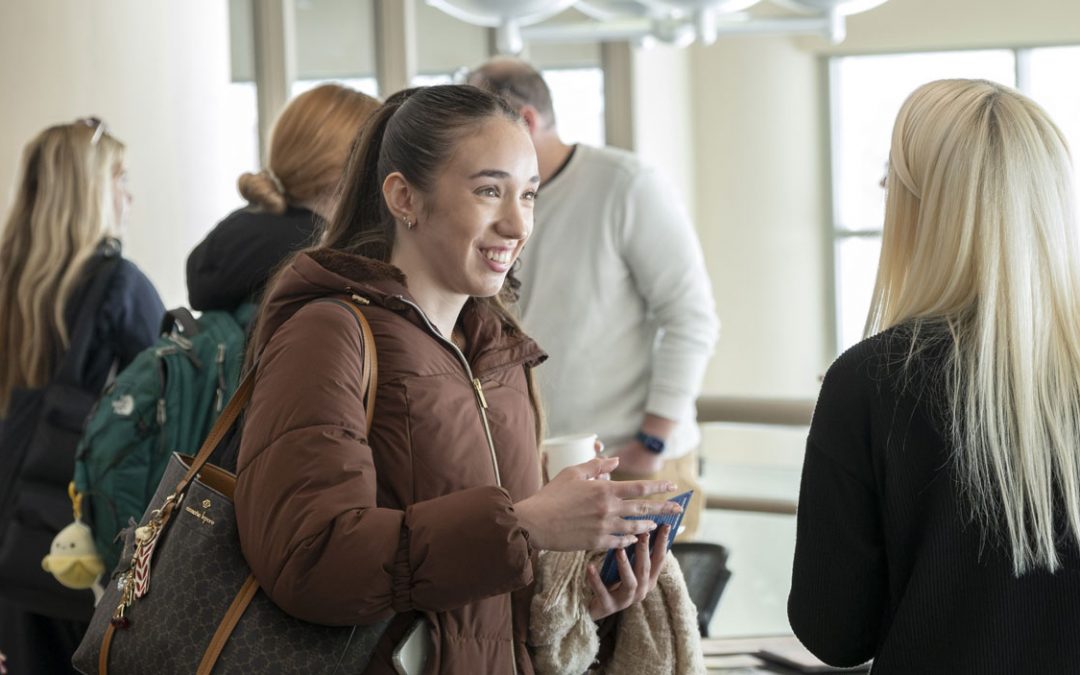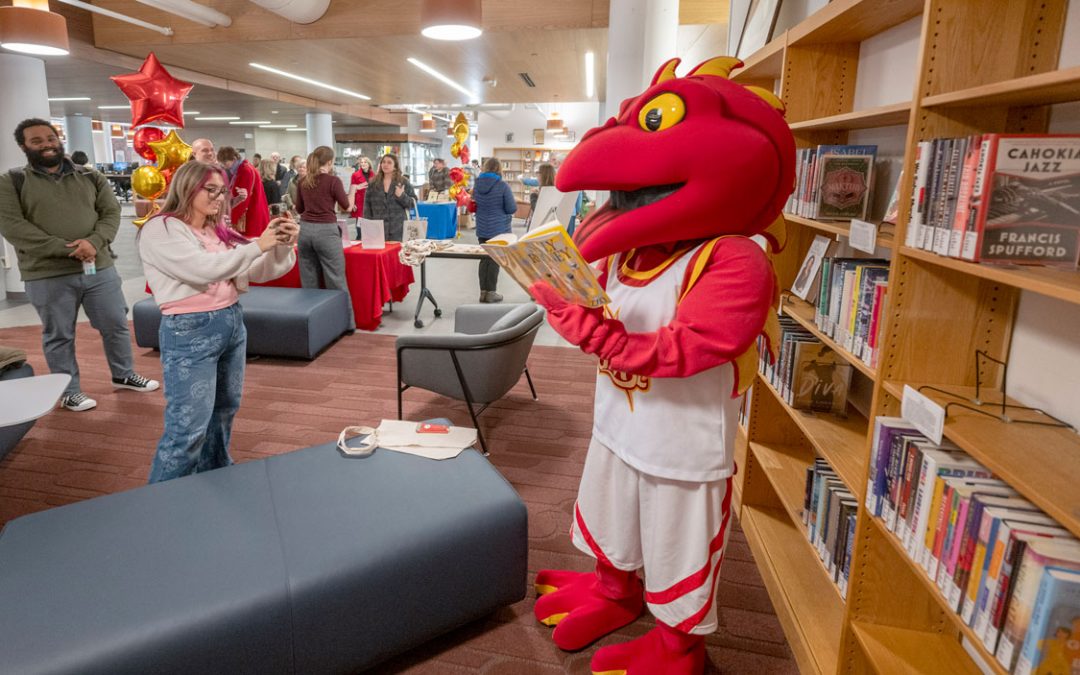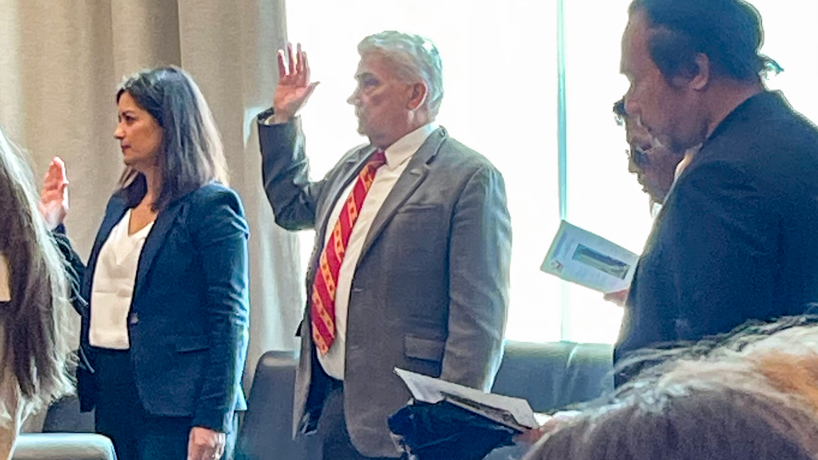
Chris Spilling, UMSL’s vice chancellor for research and economic and community development, raises his right hand to recite the Oath of Allegiance during a naturalization ceremony on Aug. 11 at the Thomas F. Eagleton United States Courthourse. (Photos courtesy of Chris Spilling)
Chris Spilling reached the end of a nearly 37-year journey on Aug. 11 when he arrived at the Thomas F. Eagleton United States Courthouse in downtown St. Louis.
Spilling, a longtime professor of chemistry at the University of Missouri–St. Louis and now its vice chancellor for research and economic and community development, walked into Courtroom 3 to take part in a naturalization ceremony. The native of Norwich, England, joined 48 other people from 27 countries that morning as he stood, raised his right hand and recited the Oath of Allegiance to the United States of America to complete the process of becoming a naturalized citizen.
“It was actually more emotional than I thought it would be,” said Spilling, who is still retaining much of the English accent he developed in his youth. “You take an oath, and at least for me, I don’t take oaths lightly. I went in there thinking it would be totally routine, and it was more overwhelming.”
Spilling first came to the United States in 1986 as a postdoctoral fellow at Northwestern University after earning his PhD in chemistry at Loughborough University in England. It had never been a goal of his to study in America, nor did he expect to stay long.
Chris Spilling registers to vote at a table set up by the League of Women Voters of Metro St. Louis for newly naturalized citizens at the Thomas F. Eagleton United States Courthouse.
“I would probably say it was completely the opposite,” Spilling said. “I had no desire to leave the UK at all at the time. I was very, very happy there. But as you progress in your science career, you want to really do well, you tend to postdoc after PhD. You can do so in the UK, but often, if you want a good academic career, you would do so either in the United States or in one of the more prestigious institutions in Europe, just to gain a different experience.
“I had a couple of mentors at my home at my university that encouraged me to look at the United States, and actually, for the longest time, I said, ‘No, I didn’t feel like doing that.’”
He ultimately relented and accepted a one-year contract at Northwestern. But he wasn’t in Evanston, Illinois, long before his postdoc was extended. Then, it got extended again, and he wound up spending nearly three years at the university.
At the end of his fellowship, Spilling had an offer for an industry position back in England at ICI Research Labs, which is now part of AstraZeneca. But he wanted to try working in academia, so he instead accepted a position as an assistant professor at UMSL.
The past 34 years have been more rewarding than he could have imagined with success in both teaching and research. He was granted tenure in 1995 and was promoted to full professor in 2001. He spent more than a decade as chair of the Department of Chemistry and two years as chair of the Faculty Senate.
In 2016, Spilling stepped into the role of interim vice chancellor for academic affairs and provost, and in May 2020, he was named to his current position overseeing research and economic and community development. Among his many responsibilities, he’s been helping lead the Transform UMSL initiative.
He’s also set down roots in St. Louis. His wife is an American, and all his children were born here. He’s watched two of his sons serve in the U.S. military.
As the years passed, the idea of becoming a U.S. citizen just seemed to make more and more sense.
“It just seemed to me there was something missing – the ability to be able to vote, the security that comes with being a citizen,” Spilling said. “Also, the kind of work that I’m doing now, which is bringing me more in contact with the federal government. There were lots of good reasons to want to do it.”
Spilling expressed a feeling of pride when he completed the last step with his Oath of Allegiance. His first act as a citizen when he walked out of the courtroom was to sit down at a table set up by the League of Women Voters to register to vote.

